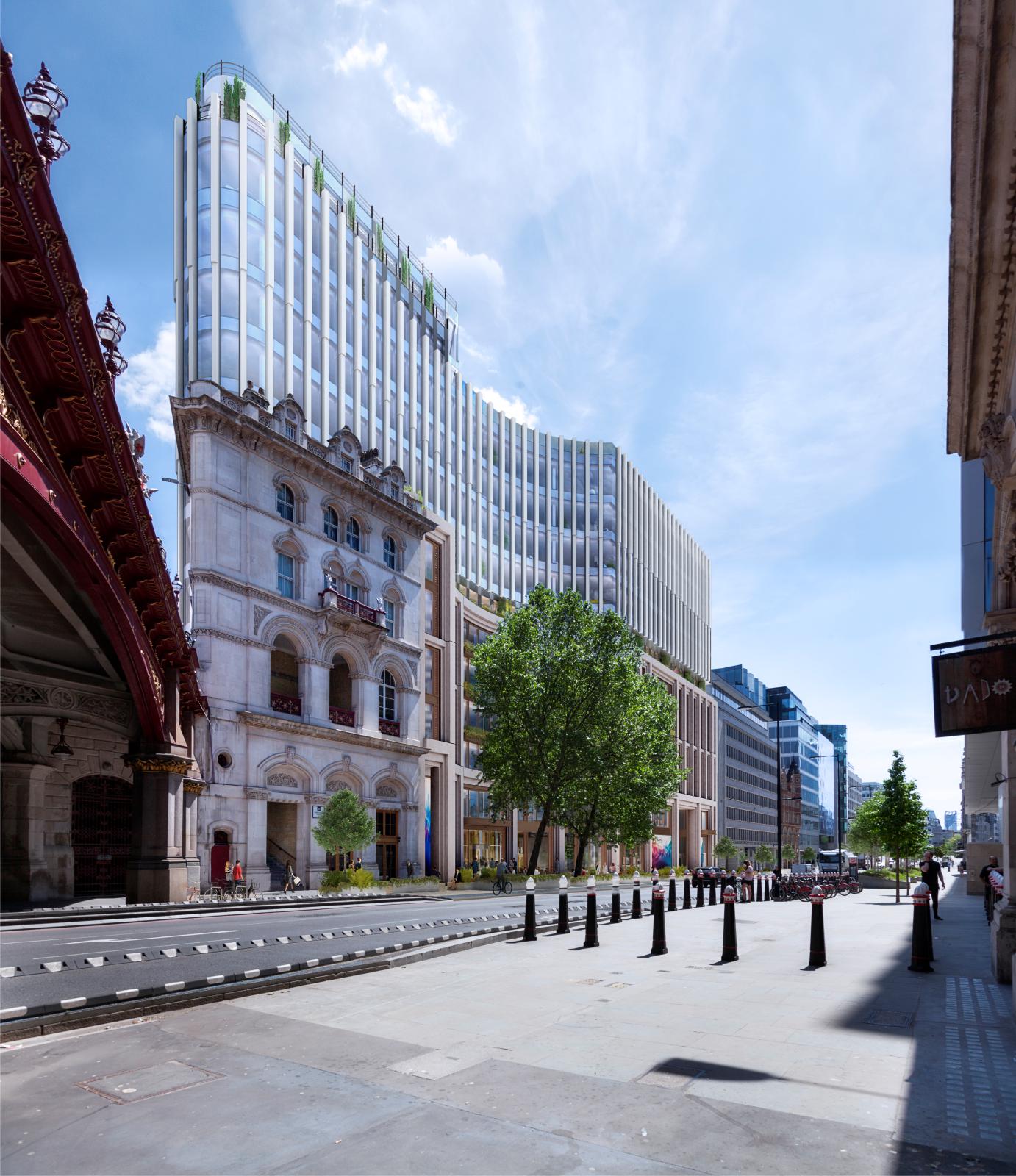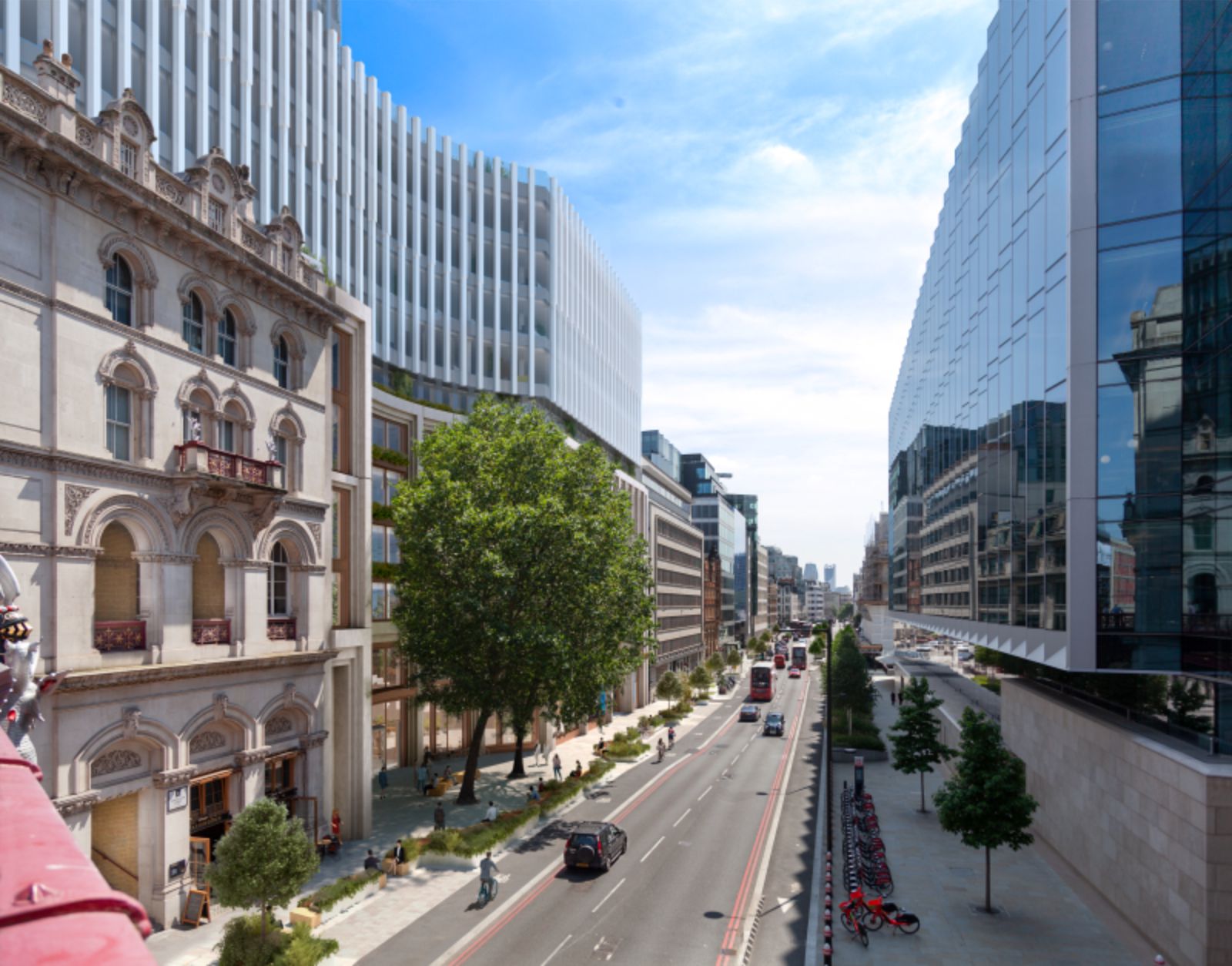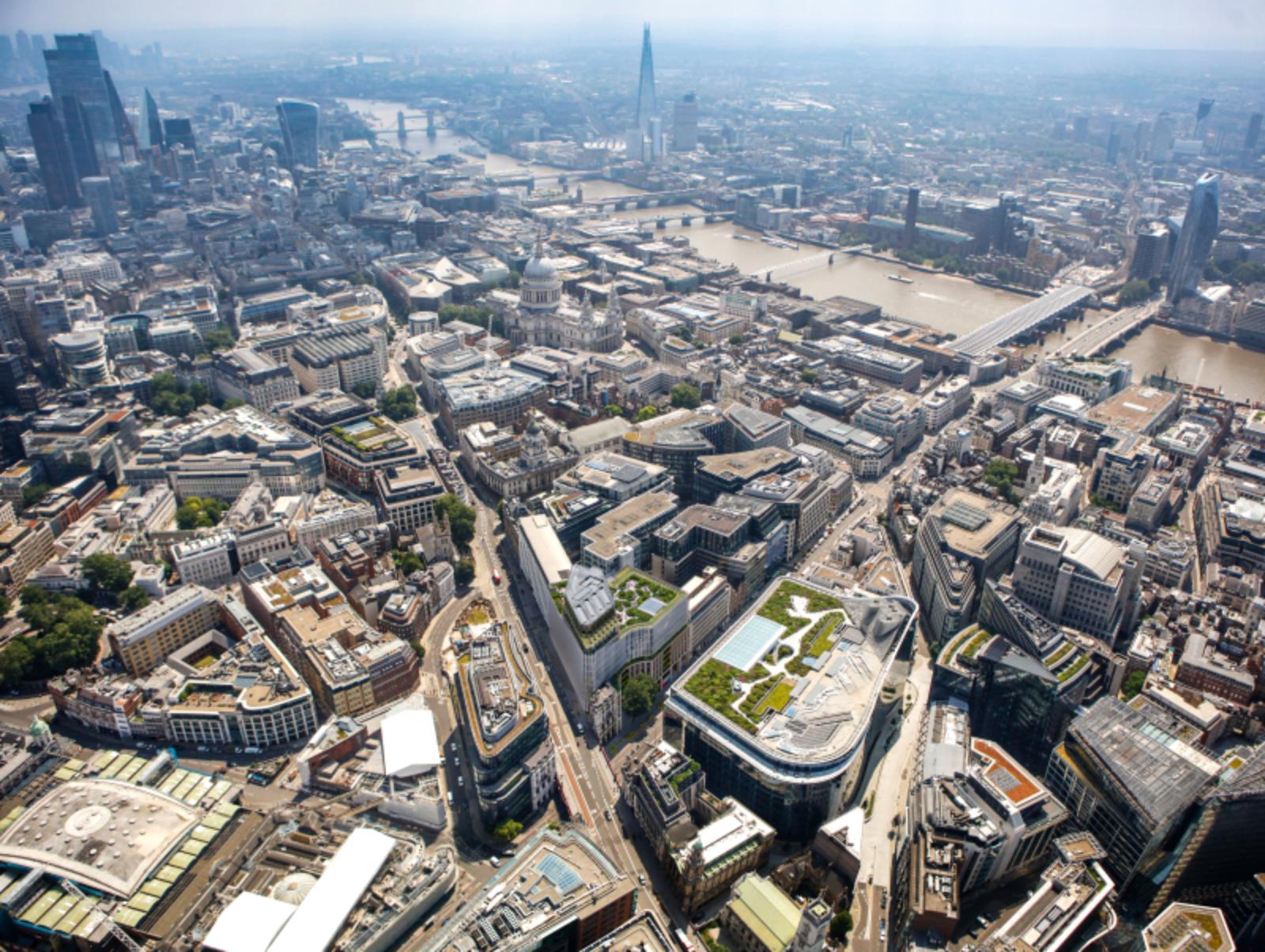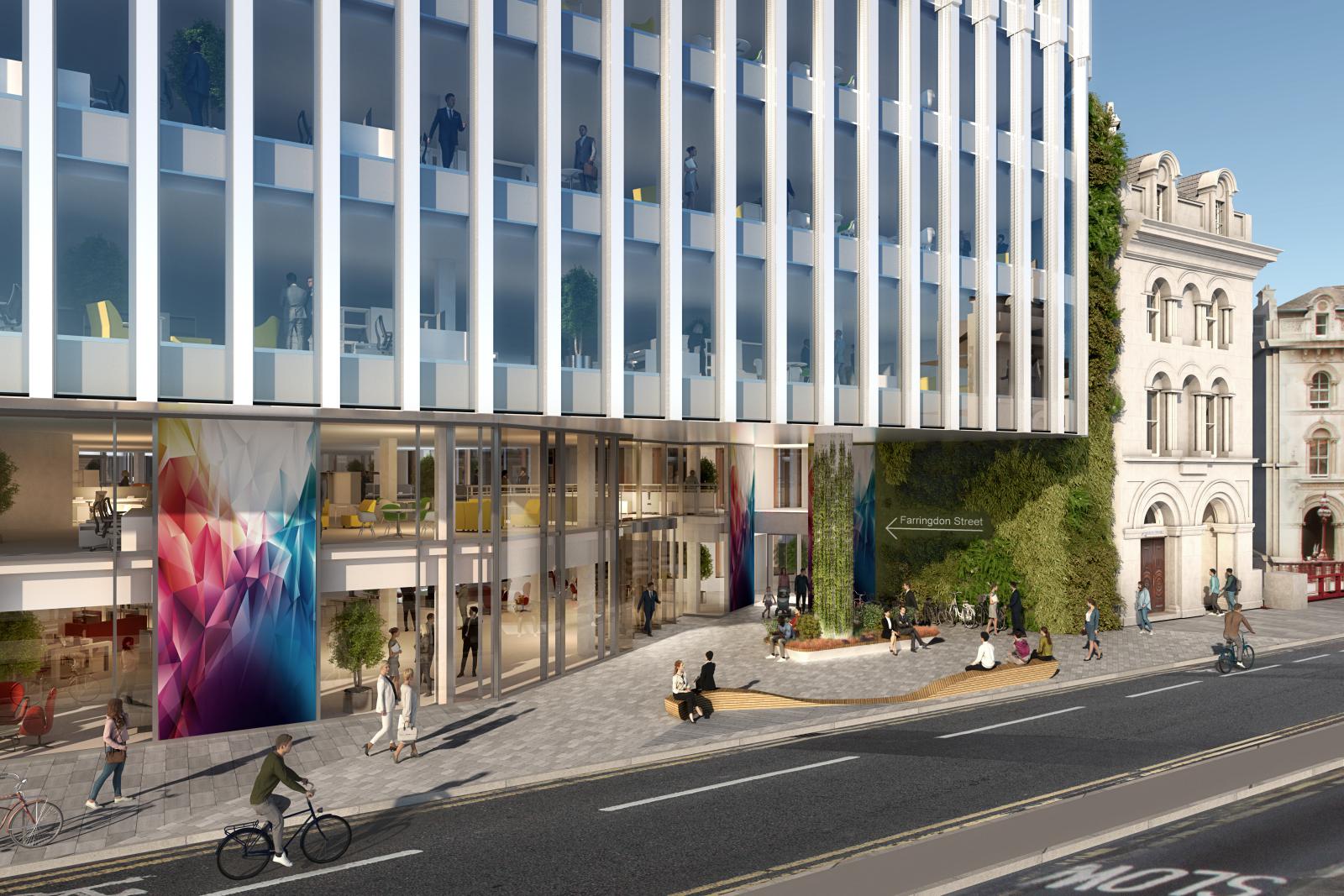PLP Architecture has designed a new office building that will sit adjacent to the Grade II listed Holborn Viaduct, marking a gateway to the Cultural Mile and significantly enhancing the public realm and pedestrian connectivity. The thirteen-storey building will deliver a sustainable, adaptable, and healthy new workplace environment, targeting WELL Platinum and BREEAM Outstanding.
PLP Architecture’s consented proposals for a new thirteen storey office building in London will deliver a sustainable, adaptable, and healthy new workplace environment on a prominent site, located at the intersection of Holborn Viaduct and Farringdon Street. At the heart of the design approach is the understanding that human comfort and wellbeing are paramount to creating sustainable environments that enhance people’s health, foster creativity and spark innovation.

The building, which was given the green light by the City of London in December 2021, has already attracted its primary tenant. Royal London Asset Management has signed law firm Hogan Lovells to lease 266,000 square feet of office space, making Holborn Viaduct its new London headquarters. All tenants will have access to adaptable, modern workplace environments, including biodiverse green terraces to promote outdoor working.
Communal and social spaces are interwoven into the lower floors and central atrium, with interconnecting staircases designed to promote movement and bring people together. The building incorporates facilities for fitness, cycling and active commuting with a dedicated Wellness Wing entrance at street level adjacent to Cycleway no. 6.

The architectural language is a response to the building’s context and is shaped to enhance the setting of the listed south-eastern gatehouse – one of four which frame the Holborn Viaduct bridge. Portland Stone, reused from the existing buildings, will form a new masonry base on Farringdon Street and weave the gatehouse back into the streetscape. Crafted perforated vertical fins on the upper levels of the building create act as a quieter backdrop to the listed gatehouse.
The massing and façade articulation have been informed by passive design principles; the façade depth and details minimise solar gain, maximise daylight and provide natural ventilation. The proposal will deliver transformative public realm improvements around the site, which marks a gateway to the Cultural Mile. On both levels the building’s frontage is opened up, with digital murals showcasing a curated programme of artwork, greenery and spaces to meet.

On Farringdon Street, two large Plane trees take centre-stage and inform the flow of the public areas around it. The façade of the offices also takes form from these trees, wrapping around them and giving those inside directed views to them. As an extension of this, a greening strategy is proposed to add trees and vegetation down Farringdon Street to Ludgate Circus.
Set to achieve BREEAM Outstanding and Well Platinum accreditation, the building will reduce embodied and operational carbon. Long-term adaptability and disassembly will be accomplished through the adoption of a layered design and installation approach to building components, allowing individual elements to be adapted and replaced in response to changing climate and future occupational requirements. Source and images Courtesy of PLP Architecture.











